Student Blog
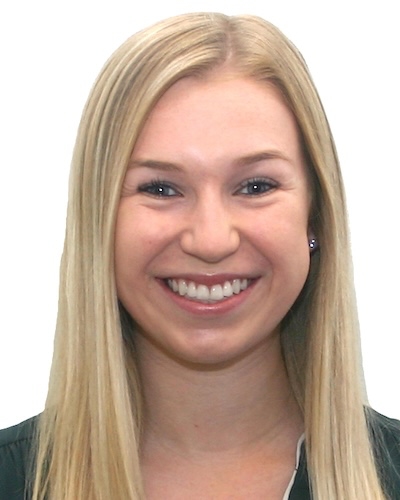
OT’s Role in Lymphedema ⟩
October 16, 2018, by Jessica P.
The semester is officially in full-swing and students here at USC Chan are immersing themselves in their Level I Fieldwork experiences. As part of our Level I Fieldwork, about halfway through the semester we have classes cancelled for the entire week and we get the opportunity to go to our fieldwork site for the whole week. This allows us to really see what it is like to be an OT in this practice setting. Last week, us second years had our full week and are now back on campus prepping for the second half of our semester.
As part of my adult physical rehabilitation practice immersion, my fieldwork this semester is at an outpatient oncology and lymphedema clinic at Providence Holy Cross Medical Center. If you are anything like me, you may be unfamiliar with what OT’s role in lymphedema is. My clinical instructor is a Certified Lymphedema Therapist (CLT), which is considered an advanced practice area within OT.
But wait . . . what even is lymphedema? When lymphedema occurs in oncology patients, it is called secondary lymphedema. This is when the lymph vessels aren’t able to adequately drain lymph fluid, usually from an arm or leg. Most of the patients that I see are breast cancer survivors who experience lymphedema of the arm or trunk. As part of their OT treatment, they come in for manual lymph drainage, which is a gentle massage guiding the lymph fluid towards areas where there are still good lymph nodes in the body.
OTs also have a critical role in educating and training patients on lifelong management of this chronic condition. It is complex and multi-faceted so OTs may utilize all different interventions such as kinesiotaping, low-level laser therapy, scar mobilization, cupping, and so much more.
One of the biggest things I learned throughout my full fieldwork week was how OTs really play a role in enabling a patient to advocate for themselves. Many of our patients come to us after years of experiencing lymphedema. They haven’t received the treatment they need and have given up. We have the important role of being able to give them hope again, while utilizing an evidence-based practice and allowing them to engage in their meaningful occupations again!
⋯
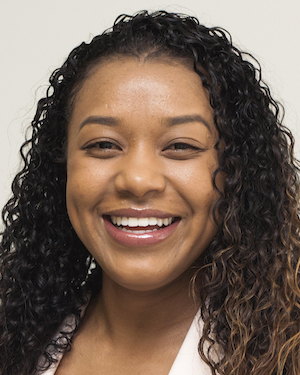
USC, CSUDH, and Loma Linda University at the 16th Annual Tea with a Scholar ⟩
October 15, 2018, by Serena
At the 16th Annual Afternoon Tea with a Scholar, I received tips from self-care to ways to receive financial aid as a student and practicing OT. The event was very informative and a wonderful way to bring occupational therapists together. Previous student ambassadors have written about their experiences with past Tea with a Scholar events, which have featured Dr. Florence Clark and Dr. Ann McDonald.
So you may ask, “What is Afternoon Tea with a Scholar?” It is an annual event put on by occupational therapists. The intention is to bring the profession together to discuss current research in the field of Occupational Science. To set the scene a bit, there were students, faculty, and staff members from USC, Cal State Dominguez Hills (CSUDH), and Loma Linda University (LLU). Additionally, board members from occupational therapy organizations like the California Foundation of Occupational Therapy (CFOT) and the Occupational Therapy Association of California (OTAC) were present. So as you can probably tell it was a great way to get more connected with the larger OT community.
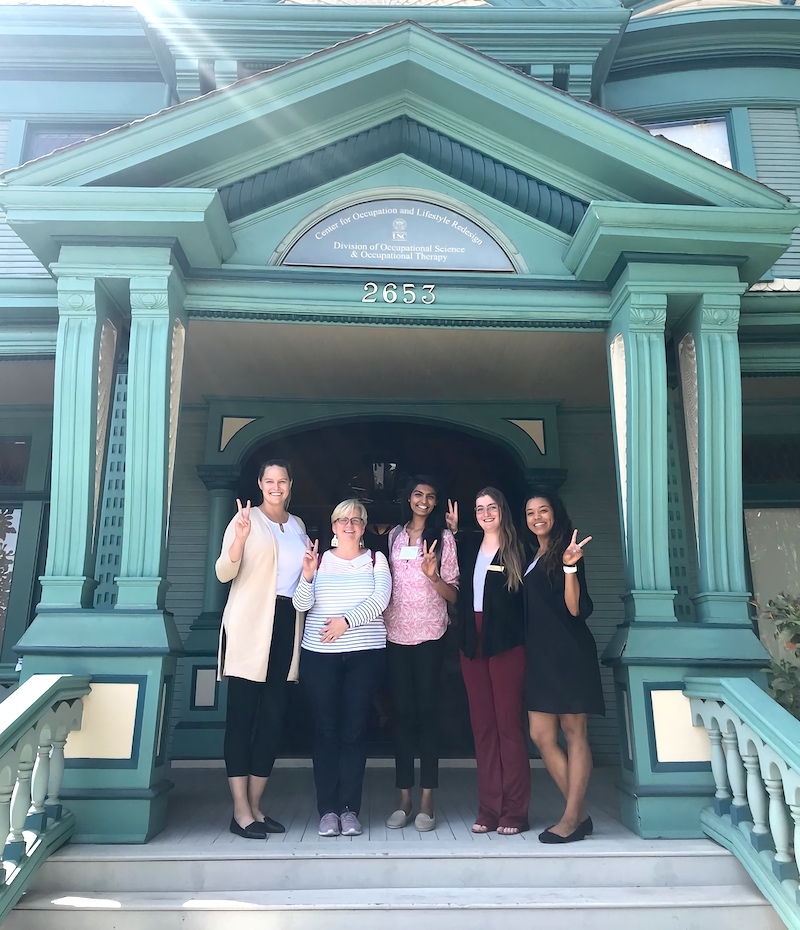
My colleagues and me at the 16th Annual Afternoon Tea with a Scholar proudly holding the Trojan sign in front of USC’s Center for Occupation and Lifestyle Redesign.
The event was held at USC’s historical Center for Occupation and Lifestyle Redesign. The topic of the afternoon was Community Health and Wellness. Dr. Julie Kugel was the honorable guest lecturer and is the director of the Occupational Therapy Doctorate (OTD) program at LLU. She presented on the current research she was engaged in and shared some of the impactful experiences that have shaped the scholar she is today. She addressed the concept of doubt and kindly stated that “Doubt does not make us any less, it makes us human.” The ability to select so many different paths in the field of occupational therapy at times creates doubt, at least for me (lol). However, with this new understanding, I find doubt to now be humanizing and a common life experience. Another concept that Dr. Julie Kugel spoke about was what it means to be a true scholar. A true scholar is a person who is able to engage in conversation and advocate for our profession. I find this skill to be crucial in our ability to expand in areas where OTs are not currently practicing but are so desperately needed in helping to promote overall health. Additionally, the benefits of volunteering at conferences was also touched upon since this allows you to understand and learn about what goes on behind the scenes. Plus, you can possibly receive a conference ticket discount by volunteering a couple of hours of your time. While volunteering, you never know who you may meet and what those connections may lead to in the vast world of occupational therapy.
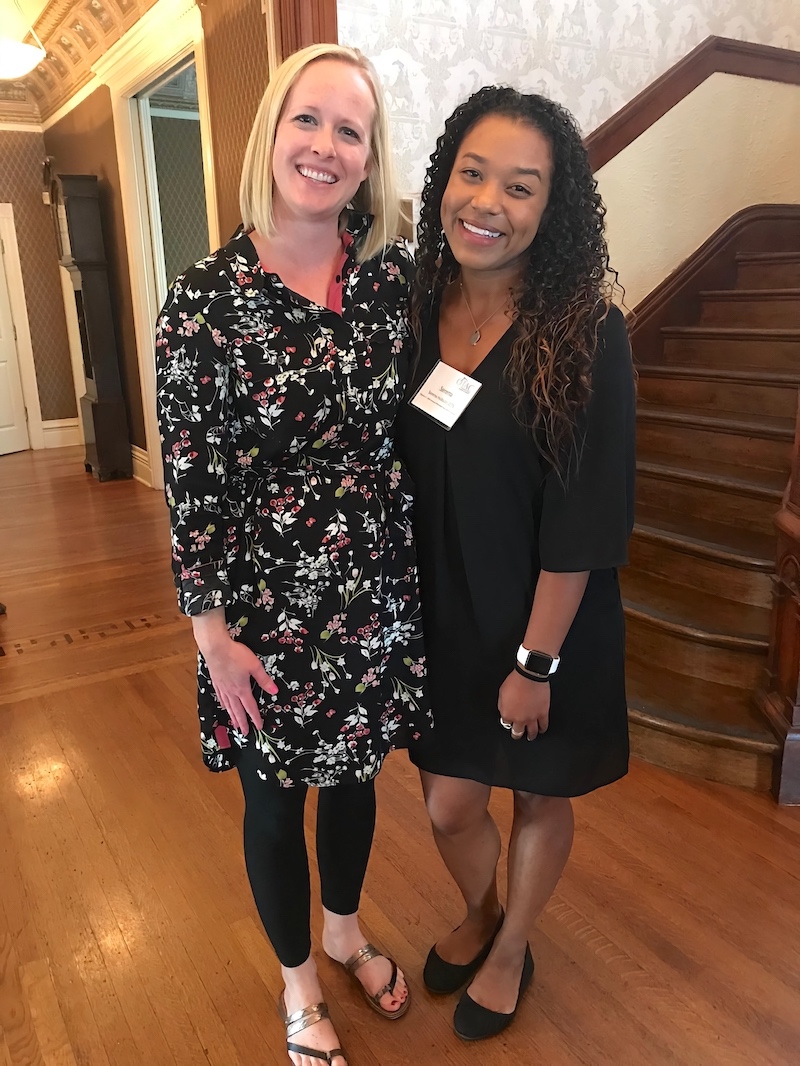
Dr. Julie Kugel after her lecture on Community Health and Wellness.
⋯
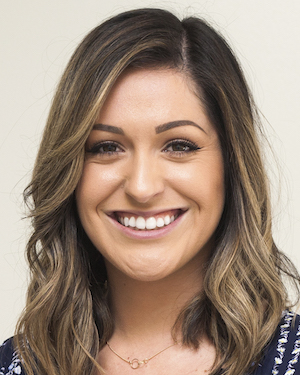
Specialization in Occupational Therapy ⟩
October 11, 2018, by Melissa
Hey everyone! I’m currently in the process of picking electives for the upcoming spring semester and I thought this would be a great time for me to talk about the opportunity to “specialize” in OT! Although the program prepares us to be generalists — meaning we graduate with knowledge in many areas — we have the opportunity to take several elective courses during the spring semester of our second year! This is where the “specializing” comes in, as you can take courses that fit your specific interests and help you expand your knowledge in a specific area. For example, a student that is interested in pursuing a career in hand therapy can take the Advanced Practice in Hand Therapy and Physical Agent Modalities and Hand Rehabilitation electives. A student interested in pediatrics may want to take the Sensory Integration Theory and Intervention courses, which is a particularly unique opportunity since Sensory Integration originated at USC. Another example is taking an OT In Acute Care course or the Enhancing Motor Control for Occupation course if you’re interested in working in a physical rehabilitation setting. These are just a few of the MANY options available to us.
In addition to taking courses within the division, students can take classes at other schools at USC, such as courses in business, education, and public policy. It’s a great opportunity to expand our knowledge of other fields, and become increasingly well-rounded clinicians. Lastly, I would like to discuss yet another option we have during the spring semester, which is an opportunity to take an independent study course with a faculty member within the division. This option allows you to specialize even further by working on a study that fits your interests. The moral of the story is that the possibilities are endless!
One thing I would like to add is that it’s okay if you don’t know what area you want to go into. You can take electives in several areas, and use the spring semester as a time to explore different options in order to see what feels like the best fit. Our program does a great job of exposing us to many different areas of practice and preparing us to be great clinicians, so don’t stress about making the decision to “specialize” if you’re not ready. As always, feel free to reach out with any questions you may have.
⋯
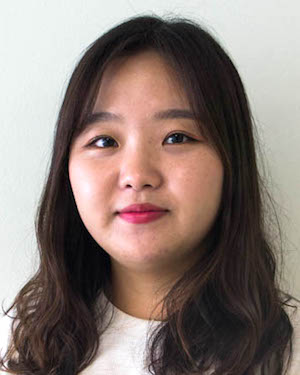
How to Get Information about the Master’s Program in Abroad ⟩
October 8, 2018, by Goeun
It is not easy to get information about a school especially when the location is far from your country. For me, after I decided to go to school in the US for master’s program in occupational therapy, I tried to gather all information, but it was quite hard to find and confusing what and where to ask. So, I’d like to share what I did, and what I should’ve done better for more information.
1. Things I did
Search the internet: This is the first and most frequent work that I did. First I searched with terms such as “occupational therapy in the US,” “occupational therapy master’s program,” “occupational therapy school,” etc. Then, I decided to surf each university’s website, especially on the USC Chan Division website (I almost decided to go to USC then). It was good to find information on the websites, but there was too much information sometimes that I couldn’t distinguish which one might be useful for me.
Ask professors from my undergraduate school: They were all supportive and helpful but it wasn’t enough since I was the first student who was applying for Master’s Program abroad at my university.
2. Things I should’ve known and done
Contact! As you may know, we have our contact information on our admission page. There are not only contact information to the admission team but also about request information and virtual information session which you can attend even if you’re not in here. I thought if I had contacted before I apply, I could know more and be sure that I’m applying properly.
Lastly, As a previous prospective international student, I was always thinking that it would be great if I could find information more efficiently, and have someone to ask questions, which is one reason why I wanted to be a student ambassador.
⋯

Teamwork Makes the Dream Work ⟩
October 1, 2018, by Jessica P.
One of my favorite parts of the USC OT program is that our learning doesn’t just stop in the classroom. Whether it’s going out to a hospital for fieldwork or to skid row to volunteer at the USC Student-Run Clinic (SRC), there are endless opportunities to apply our OT knowledge. One of the amazing opportunities we have to get involved through our Adulthood and Aging course is the Interprofessional Geriatrics Curriculum (IPGC).
IPGC is a chance for us to work with students from different disciplines including physical therapy, medicine, physician’s assistant, pharmacy, social work, and psychology. We get divided into teams and then paired with an older adult living in a low-income community housing complex.
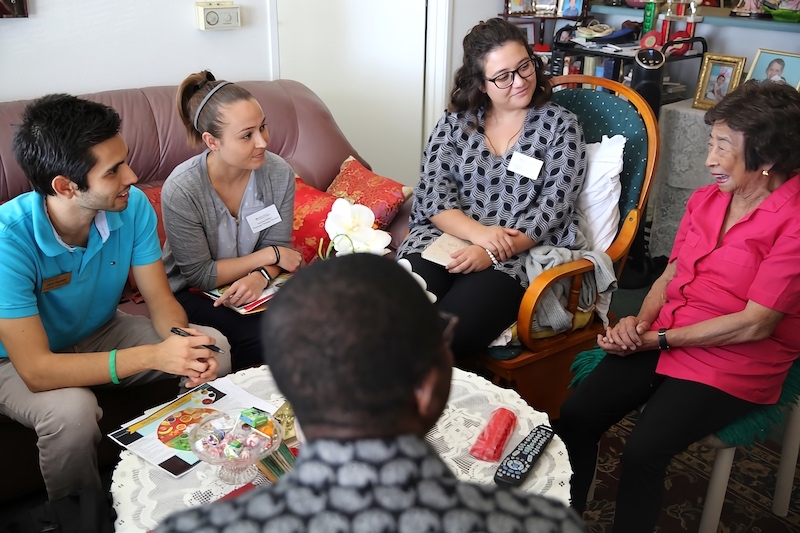
IPGC students meeting with their resident. Photo credit: Claire Norman, MSJ (courtesy of the Keck School of Medicine of USC)
Throughout the semester we spend a few Friday afternoons at the community housing complex where we get brief lectures on topics related to our visit, such as oral health, cognition, fall prevention, and psychosocial issues. After our lecture, we meet with our older adult to learn more about them and apply what we learned during our lecture.
This past Friday, I had my first IPGC visit where we started out the afternoon with a lecture on medication management and nutrition in older adults. Professors from pharmacy and medicine gave us resources, such as the Beers list, to utilize in our future practice.
After our lecture, we broke up into our teams and met our older adult who we will be working throughout the rest of the semester. We spent a lot of time building rapport with our resident and getting to know her story. My teammates and I discussed her various medications and different side-effects that may occur from those. As an OT student, my main role was teaching her how to utilize a pill box organizer and implement taking medications into her daily routines. We also discussed the importance of healthy, balanced meals and how this can influence the aging process.
The afternoon flew by so quickly that we were all sad to have our time come to an end. I felt as if we really got to know our resident and build rapport with her. After we met with our resident, our team debriefed on what went well for us as a team and identified strategies to improve on for next time. As occupational therapists, we often work in teams so learning how to navigate conflicts and communicate effectively is key and IPGC is the perfect place to begin practicing this.
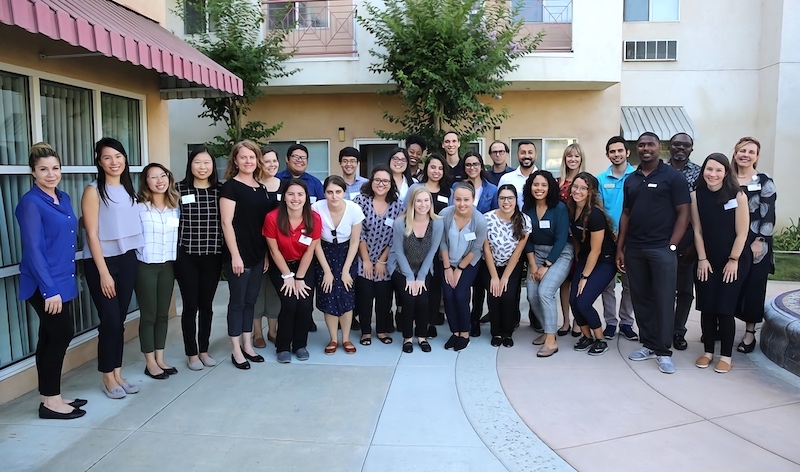
IPGC students. Photo credit: Claire Norman, MSJ (courtesy of the Keck School of Medicine of USC)
⋯





